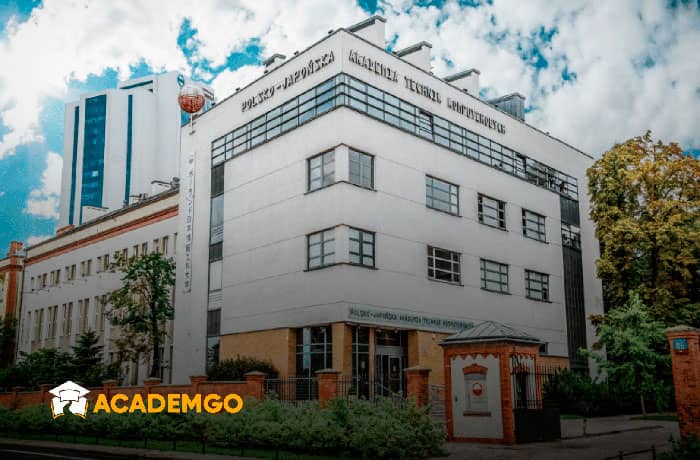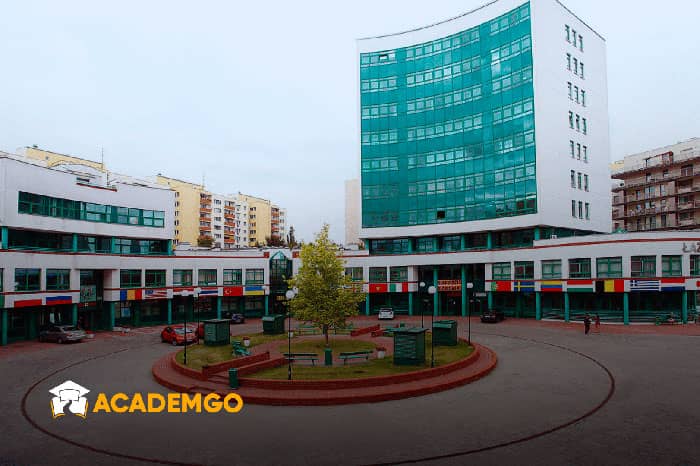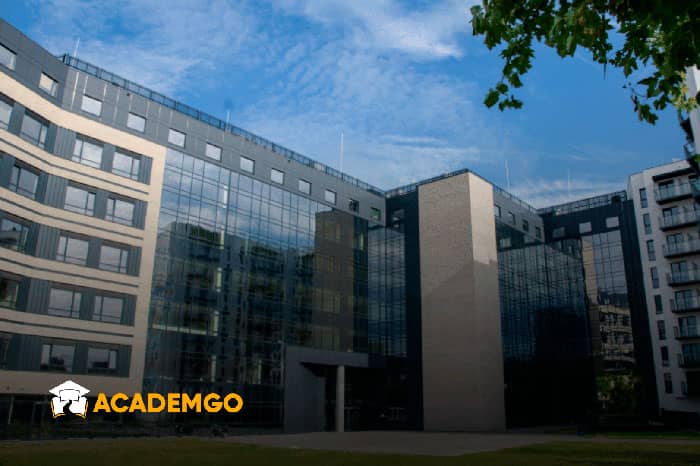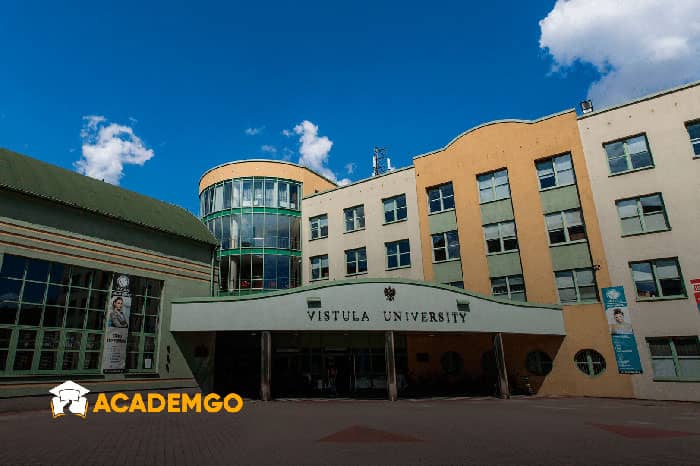
IT Universities in Poland
Applying to an IT university in Poland can be a complex process, but AcademGo provides full support at every step. We help students prepare all necessary documents, including application forms, diplomas, and language certificates. Additionally, we handle communication with the university, ensuring that your application is submitted correctly and on time.
Our team also assists with student visa applications, helping students fill out forms, submit documents to the consulate, and complete the diploma recognition (nostrification) process. This makes the admission and visa process much smoother. If you are interested in pursuing an IT degree in Poland, book a free consultation with AcademGo today!
Why Study IT in Poland?
Looking for a top destination to study IT abroad?
Poland is a great choice!
Poland has a fast-growing IT sector, affordable tuition fees, and high-quality education, making it an attractive destination for international students. Many Polish universities offer modern IT programs, giving students access to cutting-edge technologies, internship opportunities, and international career prospects.
In this guide, we’ll explain how to apply to an IT university in Poland, what documents are required, and which universities offer the best IT programs.
How to Apply to an IT University in Poland?
Applying to an IT university in Poland involves several steps.
Online Application Submission
Students must apply through the university’s admission system. Each university has its own registration platform and specific requirements, so it’s essential to check them in advance.
Application Review
The university evaluates the student’s academic performance, language proficiency, and other admission criteria. Missing or incorrect documents can result in delays or rejection.
Conditional Acceptance
Once approved, students receive a conditional acceptance letter, which allows them to proceed with tuition payment and the student visa application.
Required Documents for Admission to an IT University in Poland
To apply to an IT program in Poland, you need the following documents:
- High school diploma or bachelor’s degree (with an Apostille and sworn translation).
- Mathematics, IT, or physics exam results (only required for public universities).
- Language proficiency certificate (B1–B2 level in English or Polish, depending on the program).
- Completed application form (submitted via the university’s online platform).
- Motivation letter and recommendation letters (required for some universities).
- Portfolio or project work (for creative IT fields such as game design or graphic programming).
- Copy of passport and passport-size photos.
- Health insurance covering the study period in the Schengen zone.
Some universities may require additional documents, such as a parental consent letter for minors or an interview as part of the selection process.
Top IT Universities in Poland
Poland is home to many highly ranked IT universities. Below are some of the best options for international students:
1. Polish-Japanese Academy of Information Technology (PJATK)
PJATK is one of Poland’s leading private IT universities, offering bachelor’s and master’s degrees in computer science, graphic design, robotics, and artificial intelligence. The university has strong partnerships with Japanese and global tech companies, giving students access to state-of-the-art technology and research facilities.
2. Warsaw University of Technology (Politechnika Warszawska)
One of the best technical universities in Poland, WUT offers advanced IT programs, including cybersecurity, software engineering, computer networks, and telecommunications. The university has strong international collaborations and offers exchange programs with top universities worldwide.
3. Łazarski University
This private university offers IT-related programs focusing on business and technology management, including IT management, cybersecurity, business analytics, and project management in IT. Łazarski University is popular among international students and provides internship opportunities with tech companies.
4. University of Economics and Human Sciences (AEH Warsaw)
AEH is one of the most affordable private universities in Poland, offering IT programs such as software engineering, cybersecurity, network administration, data analysis, and machine learning. AEH emphasizes practical skills and real-world industry training.
5. Vistula University
Vistula University offers computer science and IT programs, including cybersecurity, data analytics, artificial intelligence, and multimedia design. The university attracts students from all over the world and provides English-taught programs in IT.
Cost of Studying IT in Poland
Tuition fees for IT programs in Poland depend on the university and language of instruction.
- Public universities (Polish-taught programs): 1500 to 3000 euro per year.
- Public universities (English-taught programs): 3000 to 5000 euro per year.
- Private universities: Starting from 1800 euro per year.
In addition to tuition, students should budget for living expenses, accommodation, and insurance. Many universities offer scholarships based on academic performance or financial need, and some institutions provide tuition discounts of up to 100% for outstanding students.

Career Opportunities After Graduation
Graduates from Polish IT universities have excellent job prospects both in Poland and internationally. The IT industry in Poland is growing rapidly, and companies are actively hiring skilled professionals. Global tech giants like Google, IBM, and Microsoft operate in Poland, offering high-paying jobs for IT graduates.
Poland is also emerging as a leading tech hub in Europe, opening opportunities in startups, innovative projects, and remote work. Many IT graduates choose to freelance or work remotely, serving clients worldwide.
Since Polish degrees are recognized across the EU, graduates can also find jobs in other European countries. Entry-level IT salaries in Poland range from 5000 to 6000 PLN per month (1300–1500 euro), with experienced professionals earning significantly more.
Frequently Asked Questions









